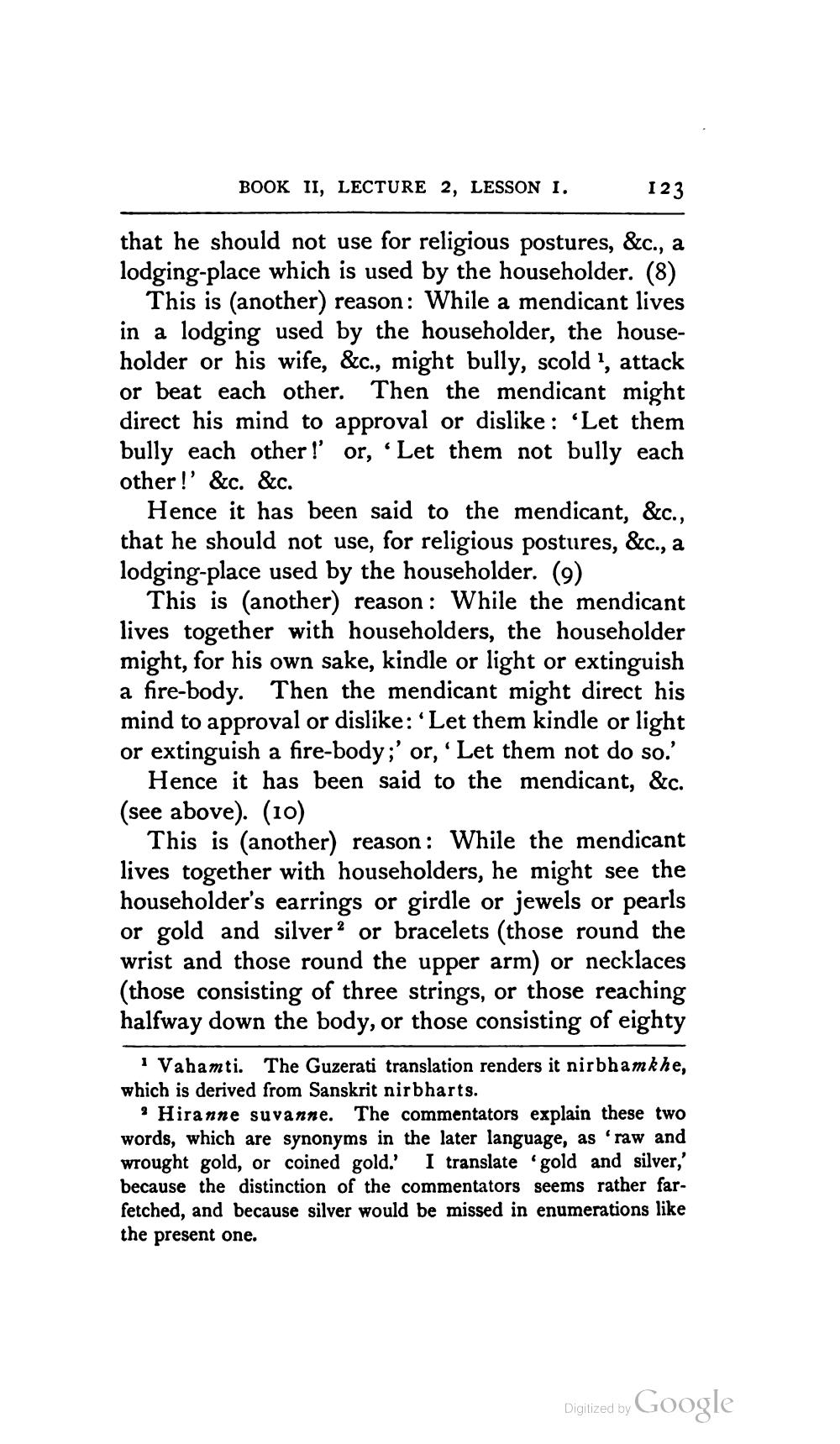________________
BOOK II, LECTURE 2, LESSON 1.
123
that he should not use for religious postures, &c., a lodging-place which is used by the householder. (8)
This is (another) reason: While a mendicant lives in a lodging used by the householder, the householder or his wife, &c., might bully, scold !, attack or beat each other. Then the mendicant might direct his mind to approval or dislike : 'Let them bully each other! or, 'Let them not bully each other!' &c. &c.
Hence it has been said to the mendicant, &c., that he should not use, for religious postures, &c., a lodging-place used by the householder. (9)
This is another) reason: While the mendicant lives together with householders, the householder might, for his own sake, kindle or light or extinguish a fire-body. Then the mendicant might direct his mind to approval or dislike: 'Let them kindle or light or extinguish a fire-body;'or, 'Let them not do so.'
Hence it has been said to the mendicant, &c. (see above). (10)
This is (another) reason: While the mendicant lives together with householders, he might see the householder's earrings or girdle or jewels or pearls or gold and silver? or bracelets (those round the wrist and those round the upper arm) or necklaces (those consisting of three strings, or those reaching halfway down the body, or those consisting of eighty
1 Vahamti. The Guzerati translation renders it nirbhamkhe, which is derived from Sanskrit nirbharts.
i Hiranne suvanne. The commentators explain these two words, which are synonyms in the later language, as 'raw and wrought gold, or coined gold. I translate gold and silver, because the distinction of the commentators seems rather farfetched, and because silver would be missed in enumerations like the present one.
Digitized by Google




